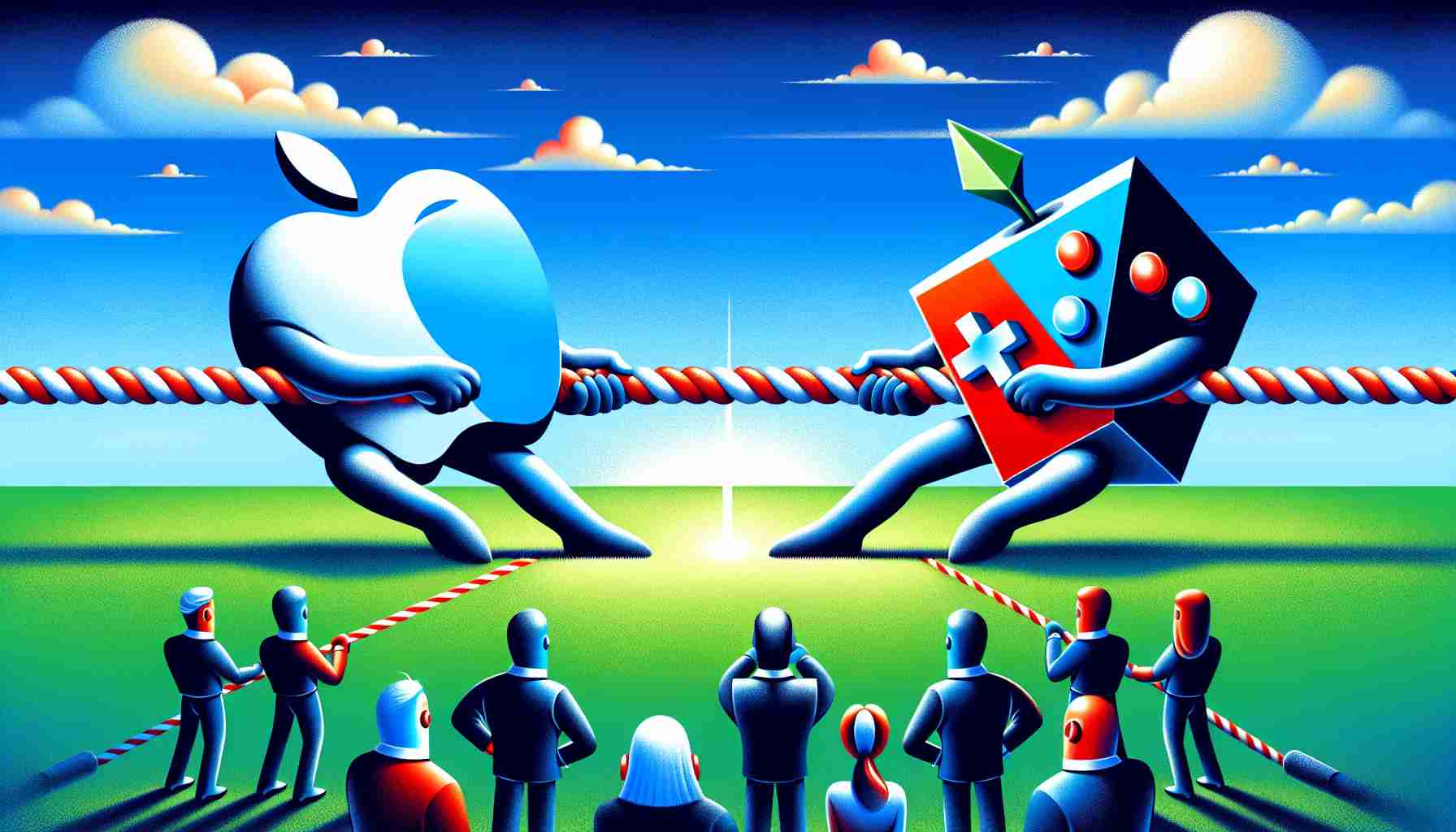Judging the Antitrust Battle
In what has developed into a protracted courtroom drama, Apple faces an uphill battle in its antitrust proceedings with Epic Games. The legal contention centers around Apple’s conduct following a mandate to permit sideloading of applications on iPhones. Despite the Cupertino tech Titan’s announcement to permit third-party app sales—a move made after an initial judicial directive—it insisted on retaining a substantial share of the sales revenue.
Discontent Sparks Further Legal Action
Epic Games has remained resilient in its legal strategies, pushing back against what it perceives as Apple’s lack of full compliance with the antitrust decree. The contention extends to Apple’s proposed commission rates: a 27 percent fee on large developers and 12 percent from smaller developers, sparking Epic’s recent legal push.
Remarks from the Bench Indicate a Tough Road for Apple
The courtroom’s atmosphere seems to spell trouble for Apple: a sentiment echoed by the overseeing judge, who expressed skepticism about the company’s commitment to a fair resolution. The judge scrutinized the tech giant for seemingly preserving its lucrative revenue streams without diligently pondering the ramifications for developers. Furthermore, Apple’s admission—that only a minute fraction of eligible developers had opted into its new terms, and none of them were prominent players—illustrates the tension between Apple’s proposed policies and the broader developer community.
As legal proceedings trudge on, the final judgment looms. While the outcome remains uncertain, the judge’s pointed observations suggest that the tide may not be in Apple’s favor. Stay tuned for future developments in this high-stakes legal clash.
Understanding the Epic Games vs. Apple Legal Dispute
The Epic Games vs. Apple dispute has far-reaching implications for the tech industry, particularly in regards to how mobile apps are distributed and monetized. The legal battle began in August 2020 when Epic Games implemented its own payment system in the popular game Fortnite to bypass Apple’s App Store payment system and its 30% commission fee. Apple subsequently removed Fortnite from the App Store, leading to Epic filing a lawsuit accusing Apple of monopolistic practices under antitrust laws.
Key Questions and Challenges
One of the most important questions in this dispute is whether Apple’s control over the App Store constitutes a monopoly that harms competition and consumers. This case challenges the acceptable boundaries of control that a platform owner can exert over its ecosystem. The key challenges for the court are to define the market in question and decide what constitutes anti-competitive behavior in the digital space.
Controversies and Criticisms
Critics of Apple argue that its App Store policies stifle competition and innovation, citing the mandatory use of Apple’s payment system and the inability to install apps from outside the App Store (a process known as sideloading). Apple defends its policies as necessary for maintaining user security and privacy.
Advantages and Disadvantages of the Legal Outcomes
If Epic prevails, it could lead to a more open ecosystem, potentially reducing costs for consumers and providing more opportunities for developers. However, it might also pose security risks if Apple’s stringent app review process is bypassed. Additionally, it could cut into Apple’s revenue, possibly affecting the resources it allocates to maintaining the ecosystem.
Conversely, if Apple wins, they will maintain control over their business model but may face increased criticism and scrutiny over their App Store practices. The status quo could persist, where consumers remain within Apple’s walled garden with both its benefits and limitations.
For up-to-date information, you can visit the following main domain links:
– Epic Games,
– Apple.
As the case proceeds, observers from all sides will be watching how the interplay of regulation, market forces, and innovation plays out not just for Apple and Epic, but for the broader tech industry as a whole.
